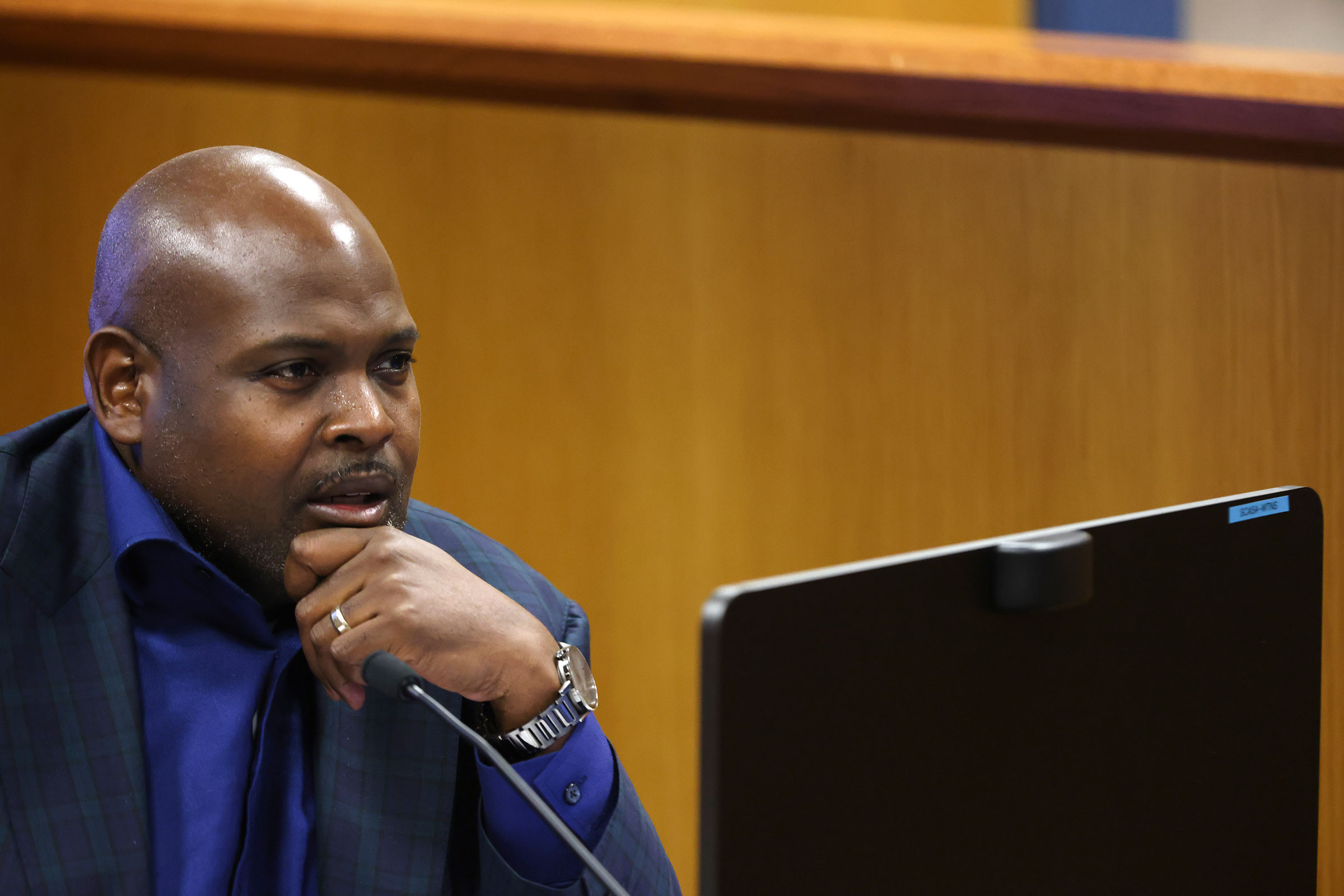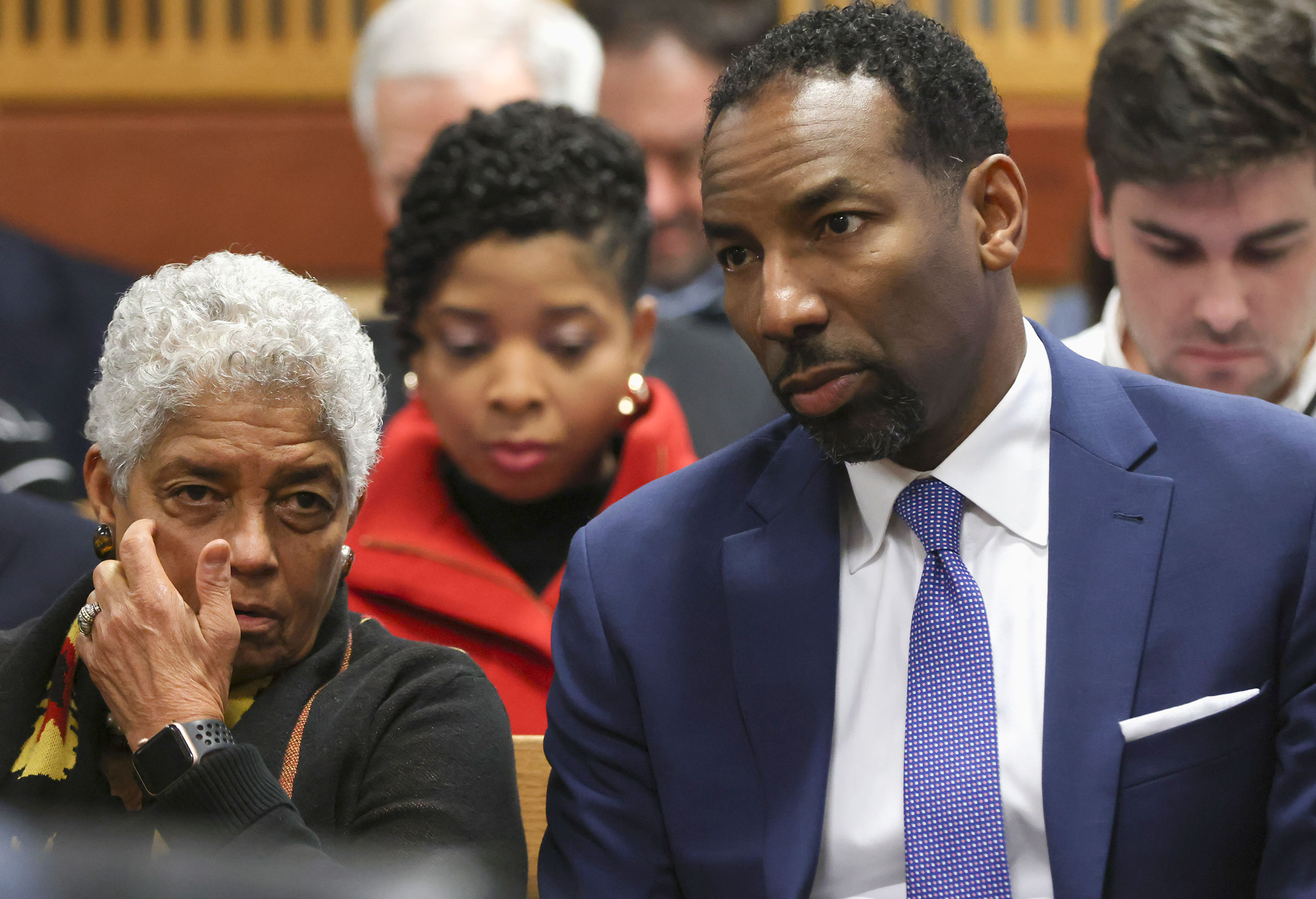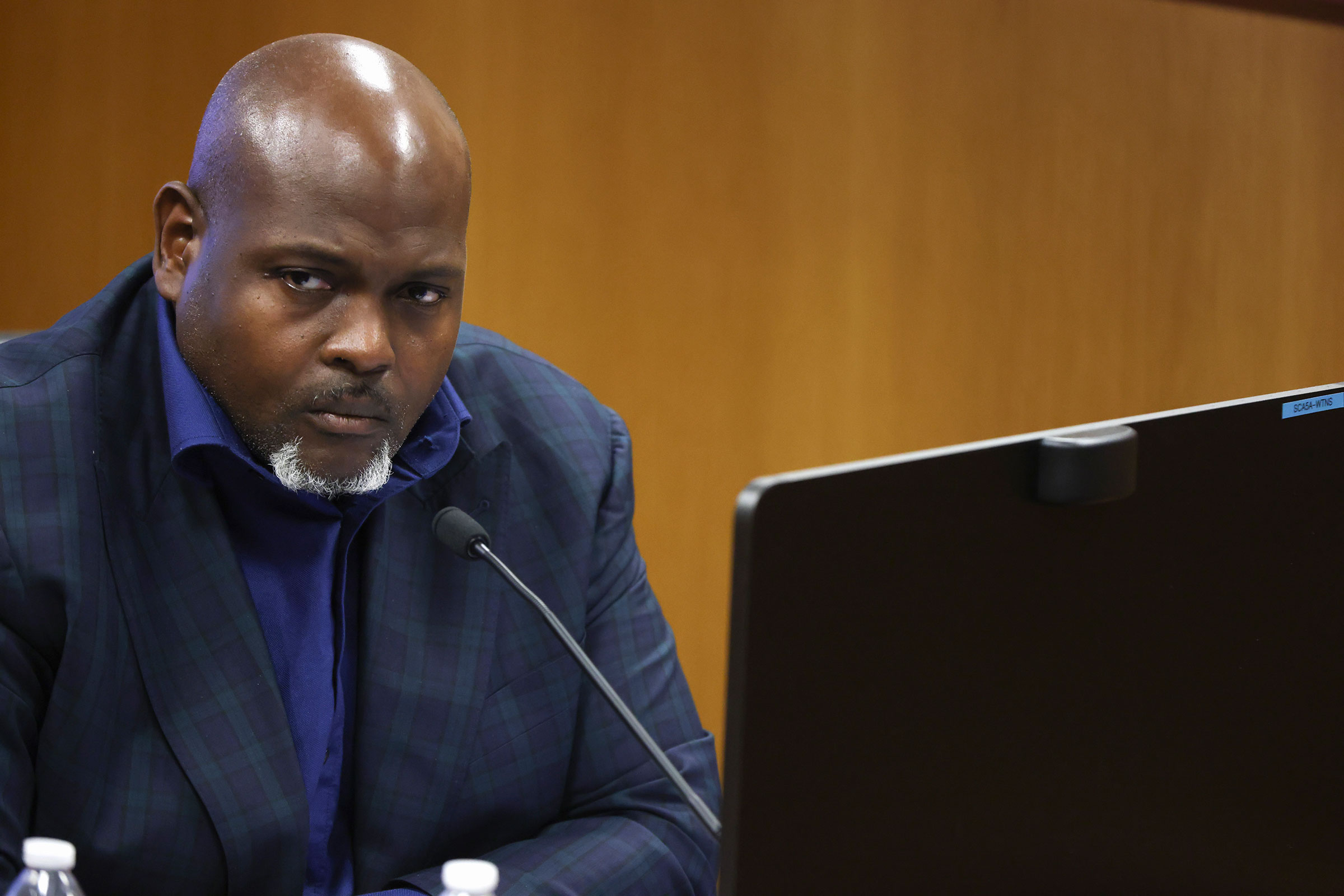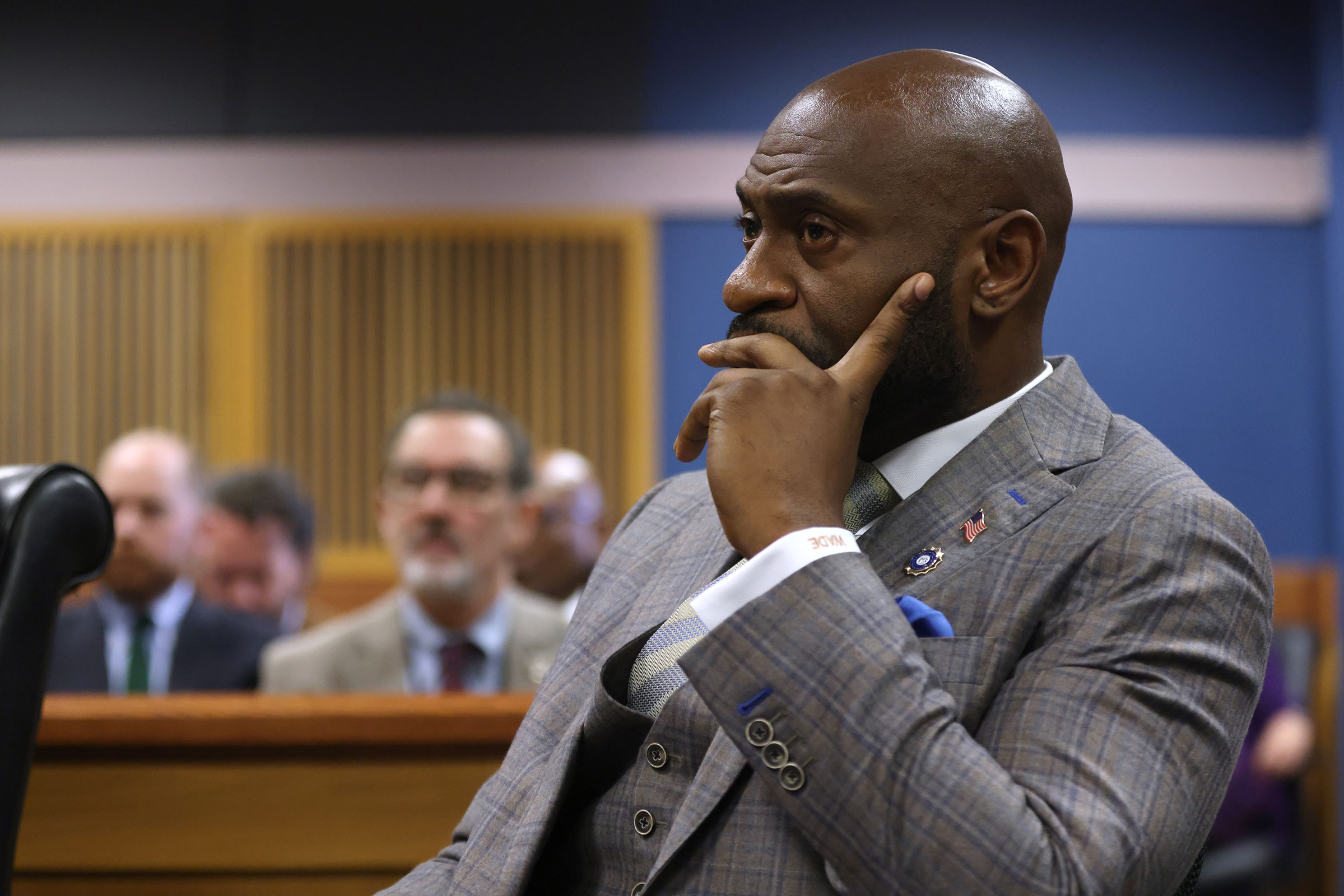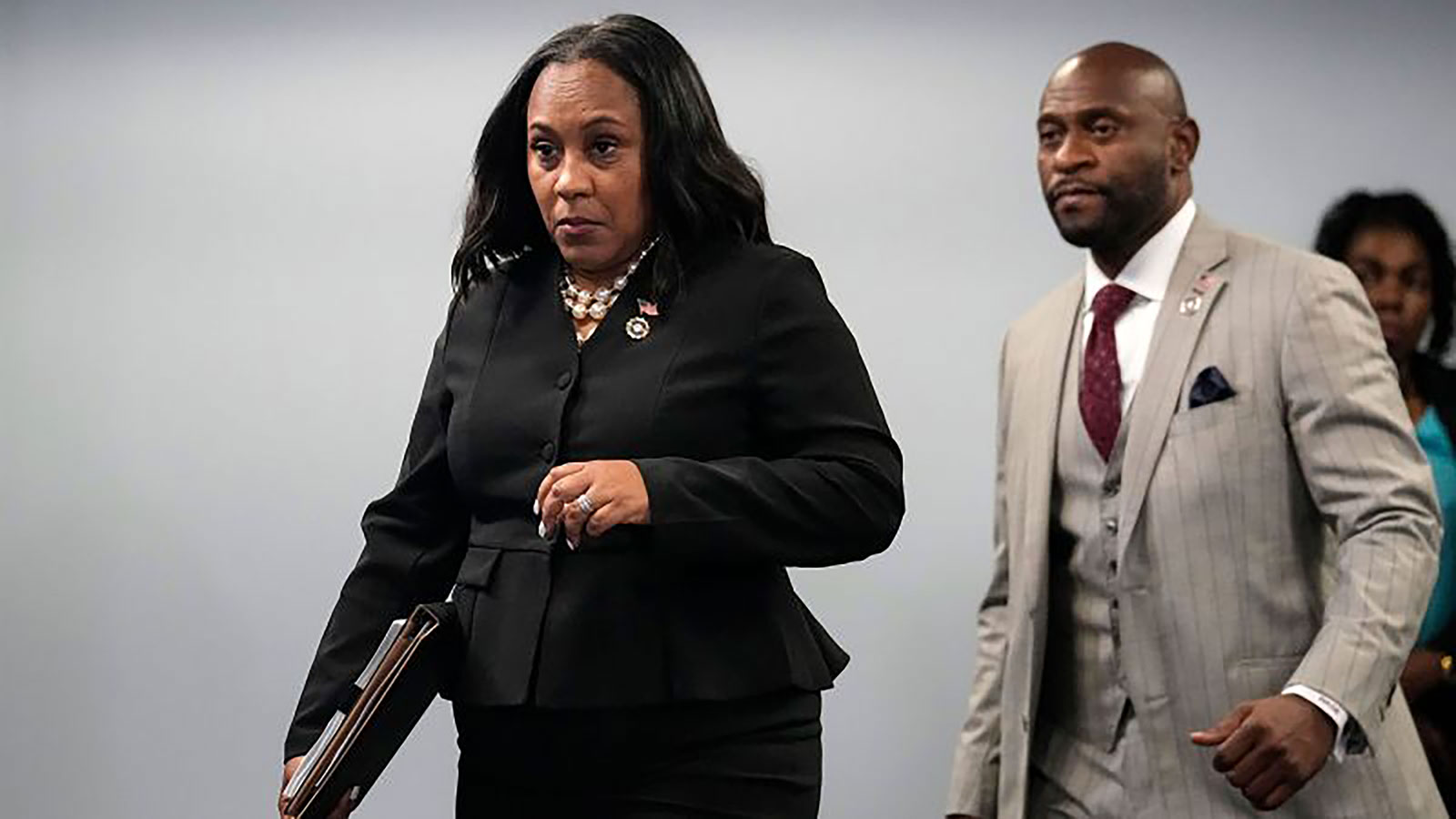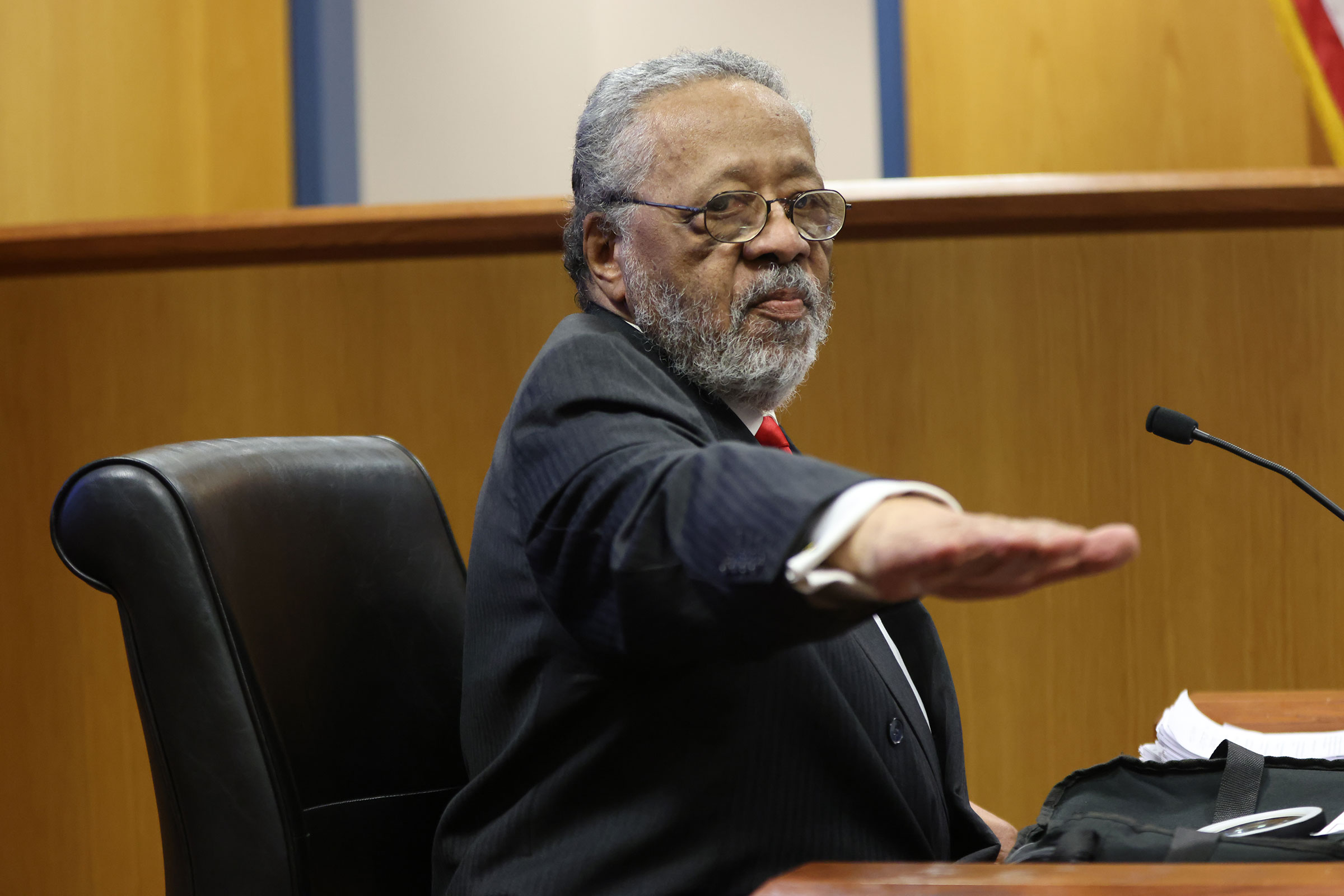The evidentiary hearing in Georgia over whether to disqualify Fulton County District Attorney Fani Willis has concluded for the time being, a judge said Friday.
The attorneys will likely have to return in the next few weeks to discuss outstanding issues, including whether Nathan Wade, the special prosecutor Willis hired to lead the case, can still assert attorney-client privilege over some testimony and evidence from his former law partner and divorce attorney, Terrence Bradley.
Both defense attorneys and prosecutors also will have the opportunity to file additional legal briefs as they see fit.
The evidentiary hearing included a tumultuous two days of testimony, including from Willis herself. Before the hearing concluded, the district attorney’s office sought to undermine Bradley’s credibility, including by raising an allegation of sexual assault by an employee of his former law firm. Bradley denied the allegation.
Bradley testified earlier Friday that he left the firm following a “disagreement,” but said the details of the disagreement were privileged. During cross examination, Bradley was pressed on whether he left because of a disagreement over a sexual assault allegation made against him.
“That is not correct,” Bradley said, but confirmed that he was accused of sexually assaulting a member of the firm.
The judge presiding over the case, Scott McAfee, questioned whether Bradley had been properly interpreting the privilege he had previously asserted over communications with Wade, given his testimony on the allegation.



